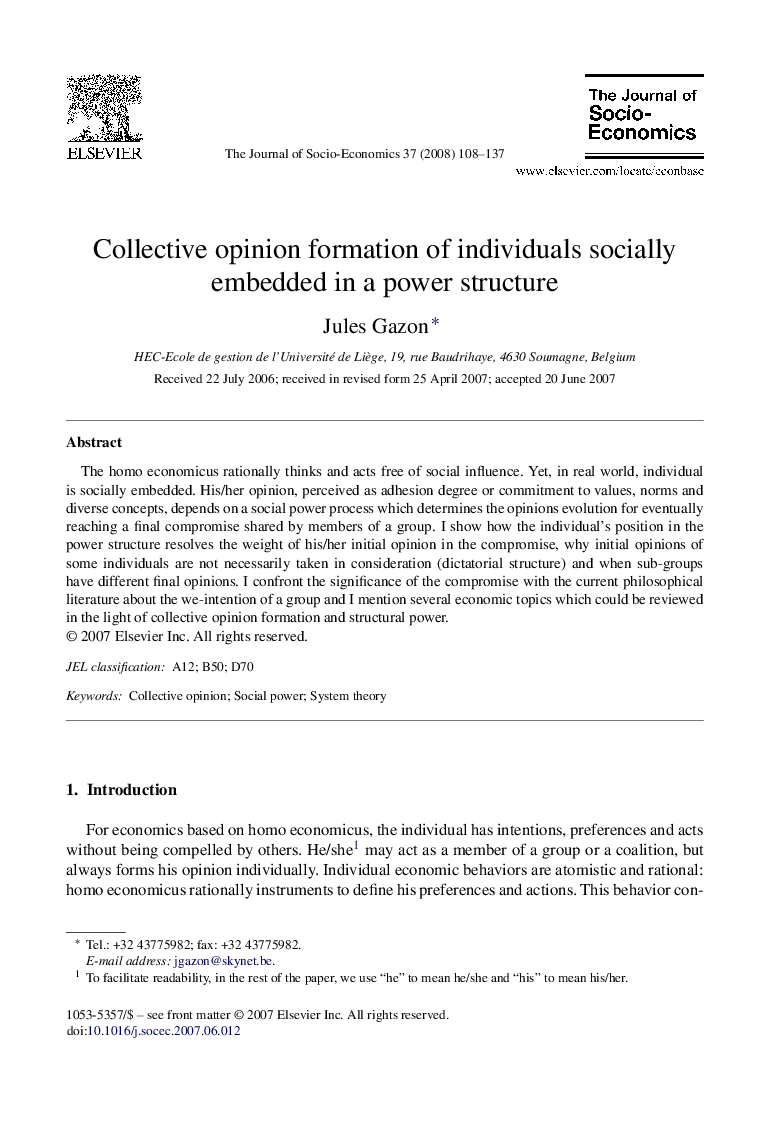| Article ID | Journal | Published Year | Pages | File Type |
|---|---|---|---|---|
| 970275 | The Journal of Socio-Economics | 2008 | 30 Pages |
The homo economicus rationally thinks and acts free of social influence. Yet, in real world, individual is socially embedded. His/her opinion, perceived as adhesion degree or commitment to values, norms and diverse concepts, depends on a social power process which determines the opinions evolution for eventually reaching a final compromise shared by members of a group. I show how the individual’s position in the power structure resolves the weight of his/her initial opinion in the compromise, why initial opinions of some individuals are not necessarily taken in consideration (dictatorial structure) and when sub-groups have different final opinions. I confront the significance of the compromise with the current philosophical literature about the we-intention of a group and I mention several economic topics which could be reviewed in the light of collective opinion formation and structural power.
